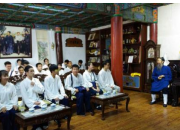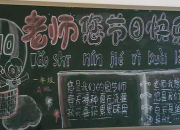小学英语优质课教学设计
时间:2021-08-31小学英语优质课教学设计范文(通用3篇)
作为一位优秀的人民教师,总不可避免地需要编写教学设计,教学设计是把教学原理转化为教学材料和教学活动的计划。如何把教学设计做到重点突出呢?下面是小编为大家整理的小学英语优质课教学设计范文(通用3篇),欢迎阅读与收藏。
小学英语优质课教学设计1
一、教材分析
Module 8 Book 5 的主题是“School”,“ Unit 1 What time does school start?”的语言功能是描述学校生活;学习任务为“What time does school start? What time do you get up?”
二、学情分析
本课的教学对象是五年级学生,他们已经掌握了一定的英语词汇,具有一定的英语学习的积极性与主动性,具备了一定的英语语言运用能力,求知欲增强。因此,在新知识传授的同时,教师要尽可能多的为学生创造良好的语言环境,给学生充足的语言“习得”机会,让学生在学习中积极参与、大胆发言,从而形成积极的情感态度和自主学习的能力。
三、教学目标
(一)知识目标
1、能听懂、会说并认读下列单词:exercise, before, playground, skip, coffee, tea.
2、能听懂、会说并认读下列句子:What time does school start? My school starts at 9 o’clock. What time do you get up? I get up at half past seven.
(二)能力目标
能口头运用“What time does school start?”这类语句询问发生的时间,并能口头运用“My school starts at 9 o’clock.”这类语句回答。
(三)情感目标
为学生创设轻松、愉悦、和谐的英语课堂学习氛围,使学生在学习中敢于开口说英语,并了解西方小学学校日常生活习惯,从而对英语学习产生更为浓厚的兴趣。
四、教学要点分析
(一)教学重点
1.单词:exercise, before, playground, skip, coffee, tea 的认读。
2.运用“What time … ?”来询问事情发生的时间。
(二)教学难点
能够在真实的语境中正确运用“What time … ?”询问事情发生的时间。
五、教学准备
多媒体课件、录音机、磁带、单词卡片、跳绳。
六、教学过程
Step 1 Warming-up
1. Chant:《I like coffee, I like tea.》(第二册中M3 U2 4)
教师一手拿coffee 一手拿tea的英语单词卡片示意学生一起拍手说Chant,并教授单词:coffee, tea。(教授单词时尽量提供一些学过的词汇,鼓励学生自己读出来,培养学生的拼读能力。)
Step 2 Presentation
1. Leading-in.
(1)课件出示学校的图片介绍说:This is our school. Do you read a book in your classroom?
(2)课件出示学校学生跳绳和做操的照片
T: What are they doing? They are skipping. Do you skip in the playground?
They are doing morning exercises.
(3)课件出示学校作息时间表引出句型:What time does our
school start? 及回答:My school starts at eight o’clock.
T:We know the school life in China, how about the children in England? Today,let’s go and visit their school with Amy.
【设计意图】出示自己学校的照片,学生感觉熟悉,同时渗透playground,skipping,exercise的单词的教学,为下边的教学活动做好相关铺垫。通过介绍自己的学校引出Amy的学校生活是什么样的?与我们的学校有什么不同?
2. Text.
(1)Listen to the tape.
T: Our school starts at 8:00. What time does Amy’s school
start? Do you know? Let’s listen to the tape and answer the question:
What time does Amy’s school start?
【设计意图】由学校生活自然要谈到几点上课的问题,学生对此问题的提出不会感到唐突。由教师对Our school starts at 8:00.的讲解,孩子们也一定急于知道英国学生的上课时间,从而初步感知课文内容,了解课文大意。
(2)Listen to the tape again.
T: I get up at 5:30. What time do you get up?
T: You get up at … And you go to school by schoolbus or walk to school and so on. How about Amy? Let’s listen again and answer the following questions:
① What time does Amy go to school?
② How does Amy go to school?
A. She walks to school. B. She goes to school by schoolbus.
【设计意图】由于中西方孩子上学时间的不同,学生起床时间的早晚必然不同。通过对问题的回答,让学生对中西方学校生活的差异有更深的了解。
(3)Look and say.
课件出示get up/watch TV/go to bed/have English/read a book/go to school的图片让学生进行交流。
A: What time do you get up?
B: I get up at
询问小伙伴的起床时间、上学时间等。
小学英语优质课教学设计2
一、教材依据
本课时教学是依据小学英语PEP教材四年级上册第四单元A部分 Let’s learn和Let’s do设计而成。
二、设计思想
这个课时的教学目标本来主要是:1、让学生掌握单词study, bathroom, bedroom, living room,kitchen听说与认读。2、能说唱“Let’s do”部分的内容并能做出相应的动作。本人根据学生的实际程度和课程理念出发,又增加了两个教学目标:1、能听说词汇watch TV, read a book, have a snack, take a shower, have a sleep。2、完成一个交际任务:介绍自己的家。采用了新课标倡导的“任务型”教学途径。 在教学中,新单词的教学都应在一定的语言情境中呈现,并结合学生已经学过的语言结构、富有韵律和动感的“Let’s do”以及学生所喜好的歌曲和游戏活动进行大面积操练,巩固新语言,最后给出新语言框架:This is my home. You can see a living room, a bedroom, a …. I can watch TV in the living room, I can read a book in the study …. Welcome to my home!,通过老师示范、尖子生示范,让学生学会介绍自己的家,并在交际活动中活化新语言,完成学习任务。
三、教学目标
1.能听、说、认读单词study, bathroom, bedroom, living room和kitchen,并能在实际情景中加以运用。
2.能听懂并发出一些指令,如:Go to the living room/ …. Watch TV. Read a book. Have a snack. Take a shower. Have a sleep.
3.能用下列语言简单介绍自己的家:This is my home. You can see a living room, a bedroom, a …. I can watch TV in the living room, I can read a book in the study ….
4.培养学生对家的热爱。
四、教学重点
1.能听、说、认读单词study, bathroom, bedroom, living room和kitchen,并能在实际情景中加以运用。
2.能用简单的语言介绍自己的'家,培养学生对家的热爱。
五、教学难点
能理解并会说Have a snack. Take a shower. Have a sleep.等语言,并能用下列语言简单介绍自己的家:This is my home. You can see a living room, a bedroom, a …. I can watch TV in the living room, I can read a book in the study ….
六、教学准备
1.教师制作多媒体课件。
2.学生每人准备一张自己家的平面图。
3.教师准备study, bathroom, bedroom, living room和kitchen的单词卡片。
七、教学过程
Step1: Warm-up(热身导入)
1.介绍话题
T: Boys and girls, look at the screen. Today, our topic is “My home”. Who can read? (ask some Ss to read the topic)
In this class, we’re going to talk about “home”, everybody here should learn to introduce your home to us. OK?
Ss: OK.
2.Sing a song In the classroom
T: First, let’s sing a song, OK?
Ss: OK.
Step2: Presentation(新课呈现)
1.教学living room
(唱完歌曲,多媒体出示一幅living room的图片。)
T: Is this a classroom?
Ss: No.
T: What is it?
Ss: Living room.
T: Yes. This is a living room. Follow me:living room,
Ss: (read one by one)
T: What can you see in the living room?
Ss: I can see a table, a sofa, a …, a TV.
T: Let’s watch TV, OK?
Ss: OK. living room.
T:(多媒体出示一幅TV图。) Do you like watching TV?
S1: Yes.
T: Let’s go to the living room and watch TV.
S1: OK.
T: Go, go, go. Go to the living room, watch TV. Let’s go together. S1: Go, go, go. Go to the living room, watch. TV.
2.教学study
(多媒体自动切换成study的图片。)
T: Is this a living room?
Ss: No.
T: Oh, we’ve got the wrong way. What is it?
Ss: A study.
T: Yes, this is a study. Follow me: study,study.
Ss: (read one by one)
T: What
can you do in the study?
Ss: Read a book.
T: (多媒体出示短语read a book。) Do you like reading books? Ss: Yes.
T: Let’s go to the study and read a book. Go, go, go. Go to the study, read a book.
3.教学kitchen
T: Oh, I’m tired. I feel a little hungry. I want to have some snack. (教师拿
出一些小点心,并吃上一块。) Do you want to have a snack? S1: Yes.
T: Here you are. Have a snack. Who want to have snack?
Ss: I want to have a snack.
…
T: Oh, snacks are gone. Where can we get some?
Ss: Go to the kitchen.
T: (多媒体出示kitchen图片和单词) Follow me:kitchen, kitchen. Ss: (read one by one)
T: Let’s go to the kitchen, have some snack. Go, go, go. Go to the kitchen, have a snack.
4.教学bedroom
T: (多媒体出示一些家具和小电器。) Look at these things. Can you help them get home?
Ss: Put the TV in the living room./ Put the ….
T: Oh, where should the bed go?
Ss: Go to the bedroom.
T: (多媒体出示bedroom图片和单词。) Follow me:bedroom,bedroom.
Ss: (read one by one)
T: Let’s sing a song “My bedroom”, OK?
Ss: OK.











